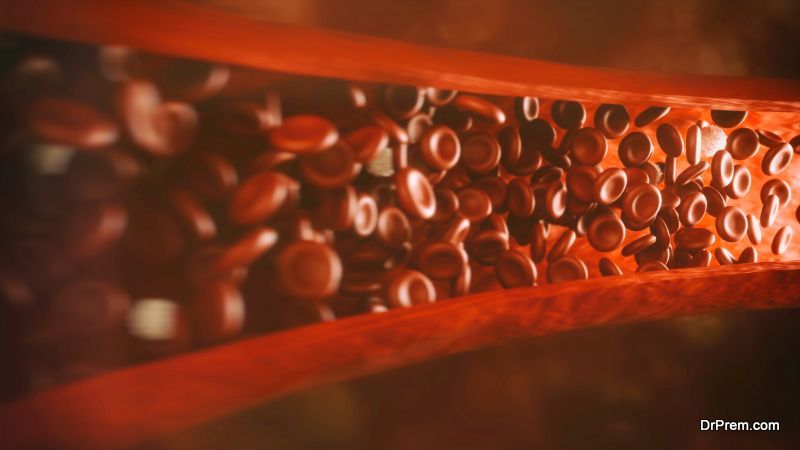Seeing a dentist regularly is about more than just a white smile and clean, fresh breath (though those are important, too!). Your oral hygiene actually has a lot to do with your overall health. And with 60% of adults fearing the dentist, getting in the chair is half the battle. It’s recommended that you get your teeth cleaned at least once a year, if not twice. Routine cleanings help remove stubborn plaque, but also give the dentist a chance to check the overall health of your teeth and gums. Still not convinced that your oral health should play an important role in your everyday life? Keep reading to discover more proof!
1. Swabs Can Detect Underlying Problems
 You probably already realize that blood and urine tests provide doctors with all kinds of information about your overall health. From diagnosing chronic conditions to monitoring your cholesterol and sugar levels, these tests are instrumental in maintaining a healthy balance inside your body. But did you know that swabs from the inside of your mouth can be just as useful?
You probably already realize that blood and urine tests provide doctors with all kinds of information about your overall health. From diagnosing chronic conditions to monitoring your cholesterol and sugar levels, these tests are instrumental in maintaining a healthy balance inside your body. But did you know that swabs from the inside of your mouth can be just as useful?
Your saliva can tell dentists in London (and doctors) a lot about your health. Stress affects nearly 80% of America’s adult population. But did you know that newborns can also be born with stress? While they enter the world relatively care-free, cortisol levels in a newborn’s saliva can indicate unhealthy levels of distress. If you suspect you have any form of cancer, a swab of the inside of your mouth might reveal more than you realize. Other diseases and disorders diagnosed using saliva tests include:
- HIV/Hepatitis
- Parkinson’s disease
- Cirrhosis of the liver
- Diabetes
- Osteoporosis
Saliva testing can also detect illegal drug use, hormone imbalance, and environmental toxins.
2. Saliva Helps Kill Bacteria
Saliva isn’t just useful for diagnosing certain conditions; it also helps keep your mouth healthy and clean. Saliva acts as a natural defense against foreign invaders and substances. Think of it as the immune system of your mouth. Here, bacteria and viruses breed and grow (which is why brushing, flossing, and routine check-ups are so important). Saliva contains antibodies geared toward fighting off germs. A common fungal infection found in the mouth is oral thrush, also known as oropharyngeal candidiasis. Thrush occurs when a naturally growing fungus known as candida albicans grows out of control, taking over and infecting your mouth. Several things can trigger this overproduction of bacteria including pregnancy, certain medications, and smoking. Saliva helps to keep your candida albicans in check using proteins called histatins. Histatins are weakened by certain illnesses including HIV. Saliva works overtime in your mouth to help keep bacteria away.
3. Other Conditions Manifest First in the Mouth
 Even without any other symptoms, certain medical conditions actually originate right inside your mouth. Interestingly enough, your mouth acts as a window into the rest of your body. Many times, underlying conditions will first manifest here. This is especially true of systemic diseases, or those that affect your entire body. Things like diabetes, flu, and AIDS often manifest first as lesions.
Even without any other symptoms, certain medical conditions actually originate right inside your mouth. Interestingly enough, your mouth acts as a window into the rest of your body. Many times, underlying conditions will first manifest here. This is especially true of systemic diseases, or those that affect your entire body. Things like diabetes, flu, and AIDS often manifest first as lesions.
4. Plaque Can Cause Infections and Disease
Plaque — it’s the main reason people visit the dentist. Plaque is a sticky, soft film that builds up on your teeth over time. Not only is plaque unsightly, but it contains millions of bacteria, which are the leading cause of gum disease and tooth decay. If you’ve let your plaque build-up go for too long, you may be staring down receding gums and even rotted or missing teeth! This alternative can help give you that bright smile back. But a compromised smile shouldn’t be your only concern. Plaque can also cause infections and diseases when gone untreated.
Gingivitis quickly turns to gum disease (periodontal). More advanced types of periodontitis are known as trench mouth, or acute necrotizing ulcerative gingivitis. Symptoms of trench mouth include bad breath, a bad taste in your mouth, and ulcers. Other disorders not directly related to your teeth but also caused by gum disease and oral bacteria include cardiovascular disease and advanced diabetes. While research is still being done to determine exactly how oral hygiene affects these conditions, there are some shocking correlations.
Diabetics are constantly monitoring and struggling to control insulin and blood sugar levels in the body. Not only can diabetes cause gum disease, but oral infections may disrupt a person’s blood sugar levels and lead to insulin resistance. Your heart health isn’t something to mess with. Did you know that gingivitis might be a sign that your cardiovascular system is at risk? Gum disease has been linked to blood clots and clogged arteries in some patients. Gingivitis doesn’t only cause inflammation of the gums but may be responsible for inflammation in other parts of the body, including your arteries. When you mistreat your gums, you’re also increasing your risk of suffering a heart attack or stroke.
5. Oral Hygiene and Your Bloodstream
 Your bloodstream offers a direct connection to every inch of your body. When you consume medication, alcohol, or illegal drugs, the minute it hits your bloodstream, your body is hard at work sending it to your vital organs, including your brain. While this is a positive thing when it comes to ingesting helpful medication, it’s a dangerous reality when it comes to your oral hygiene. Luckily, bacteria from your mouth don’t normally enter your bloodstream. But when you floss or brush too often or too aggressively, you’re opening up gateways into your bloodstream. Bacteria can easily enter your body this way. Another culprit is medications that reduce your natural production of saliva. Remember, saliva acts as the immune system for your mouth. Without it, you’re more susceptible to illness and bacteria entering your bloodstream. The likelihood of this happening is much higher if you already have a weakened or compromised immune system.
Your bloodstream offers a direct connection to every inch of your body. When you consume medication, alcohol, or illegal drugs, the minute it hits your bloodstream, your body is hard at work sending it to your vital organs, including your brain. While this is a positive thing when it comes to ingesting helpful medication, it’s a dangerous reality when it comes to your oral hygiene. Luckily, bacteria from your mouth don’t normally enter your bloodstream. But when you floss or brush too often or too aggressively, you’re opening up gateways into your bloodstream. Bacteria can easily enter your body this way. Another culprit is medications that reduce your natural production of saliva. Remember, saliva acts as the immune system for your mouth. Without it, you’re more susceptible to illness and bacteria entering your bloodstream. The likelihood of this happening is much higher if you already have a weakened or compromised immune system.
Final Words
Dental hygiene is more important than most people realize. From helping medical professionals diagnose certain conditions to preventing others from forming, brushing, flossing, and getting routine cleanings are your body’s first defense against bacteria and infection. So, next time you think about canceling your annual cleaning, think again!
Article Submitted By Community Writer




